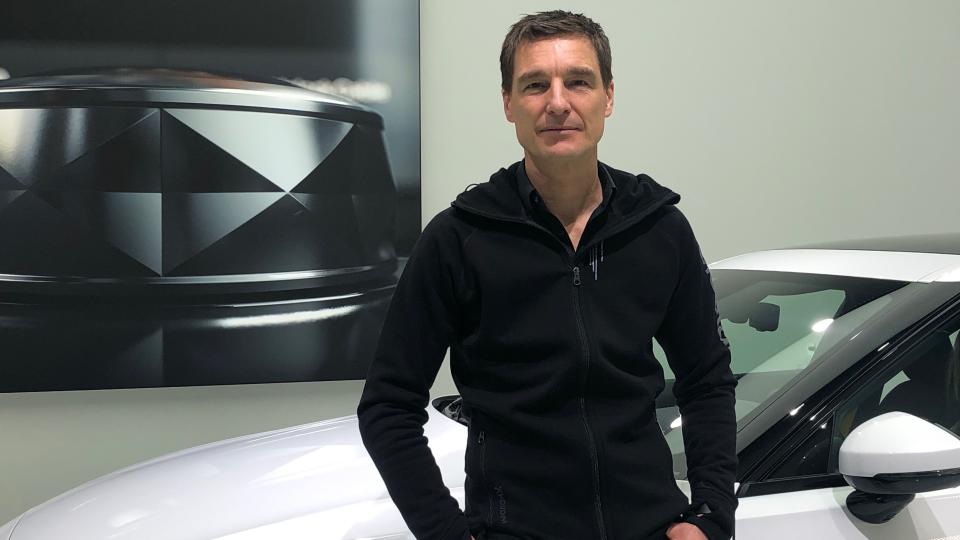Polestar chief says carmakers face bigger challenges than Brexit

Volvo’s performance brand Polestar is one of many car companies showcasing new electric cars at Geneva International Motor Show this week.
Polestar CEO Thomas Ingenlath says the electric five-door Polestar 2 hatchback will compete not only with Tesla, but also with others offering electric vehicles in the premium segment like Audi and BMW.
In an exclusive interview with Yahoo Finance UK, he says the crucial task is to convince people to buy e-cars instead of combustion engine ones.
Ingenlath says predicting consumer behaviour around electric mobility is now the biggest challenge facing the global car industry.
READ MORE: Volvo’s Polestar unveils new electric car to rival Tesla
Cars are a big purchase, and he says anyone considering buying a new one will think about whether they should invest in combustion engines, in case they die out.
“I don’t think that people will wait another generation; as soon as that kind of mindset spreads it will spread very quickly,” Ingenlath said.
But not knowing how quickly and in what numbers people will go electric could lead to companies investing in the wrong mix of powertrains.
“What is the prediction of the mix, how will it develop… these are big bucks decisions,” he added. It is also the kind of uncertainty the car industry is not used to.
It is not just about ensuring you have an electric variant in your model line up: “Imagine you would develop both models… you could put at least 50% of your development money into something that potentially will not pay off.”
READ MORE: Honda pledges to go electric-only in Europe by 2025
Bigger challenge than Brexit
Ingenlath believes that calling the automotive future currently dwarfs other threats hanging over the industry, including tariff threats, EU emissions regulations, and Brexit.
“I don’t want to make Brexit seem small, but it is one market in the big mixture of China, America, Europe.” Ingenlath said. “I mean of course it has an effect but it is not a threat to a company like making the wrong decision in terms of your factories, or battery development.”
READ MORE: Peugeot CEO’s warning about EU carbon emission rules
However, he acknowledges that Brexit could make things difficult for Polestar, if it made sports cars more expensive in the important UK market in the future.
“At a certain point it just gets too expensive for the customer.. and at some point it doesn’t make sense to bring the cars there.”
The positive trends in the industry
Ingenlath sees a few positive trends emerging in the automotive industry too. One of them is that automotive rivals are teaming up to develop new tech together, like Mercedes and BMW’s new automotive driving partnership.
“Tech companies showed us much more about co-creation, and how that is really beneficial for the consumer,” he said.
Another industry tradition Polestar plans to abolish is how customers buy their cars, doing away with the old-school dealership network in favour of boutique style spaces where they can see the car then order it online.
Dealers are happy as they earn their money with servicing and repairing cars anyway, and customers don’t have to stress about shopping around dealerships for the best price, which, Ingenlath says, “is such a silly system.”

 Yahoo Finance
Yahoo Finance 